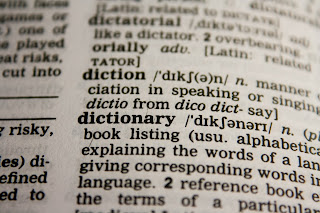5 Fun Vocabulary Activities Your Students Will Enjoy
One of the often-overlooked aspects of reading comprehension and writing is vocabulary. Taking time to focus on unfamiliar words will do wonders to grow your students’ verbal skills.
Remember that vocabulary is not only for
English or language arts classes.
Vocabulary can and should be incorporated into math, history, science,
the list goes on!
Vocabulary Review
- Reviewing vocabulary is best when it consists of the following elements:
- Pronouncing the word
- Presenting a sentence using the word and asking students to share educated guesses as to the word’s meaning
- Writing the part of speech and definition or denotation
- Reviewing student-produced connotations of the word
- Creating an original sentence that reflects the word’s meaning
- Drawing a picture to represent the word
All of the above-listed elements can go
on index cards, lined paper, poster board, etc.
Encourage each student to do what works best for him/her.
Side note: Please, please, please
have dictionaries in your classroom! Despite
computers have more conveniences than we can count, nothing can replace the
brain function applied to opening a dictionary and navigating through the
alphabetically-ordered arrangements of letters to lead to the sought-after
word.
Also, have your students handwrite the
vocab words, definitions, sentences, etc. rather than typing them, at least
initially. The physical action of
handwriting is part of the process that enforces the full picture of understanding
each word’s meaning and how each word is spelled.
You might consider having each student
keep a vocab notebook for your class so that he/she can compile a personal
“dictionary” of new words to refer back to throughout the semester or year.
Skills Gained Through Vocabulary
Vocabulary does not have to be (well,
should not be) a dreaded component of your class. By changing up the ways that vocab is part of
your course, your students will not only be engaged but will grow a plethora of
skills:
- Reading comprehension
- Reading fluency
- Using context to determine denotations
- Using context to decipher connotations
- Building spelling ability
- Writing complex sentences
Vocabulary words can be teacher-selected
prior to the lesson/chapter/unit or can be student-selected in real-time as
each individual encounters words that are new to him/her. A combination of teacher-selected vocab and
student-selected vocab is feasible as well.
The benefit for you, the teacher,
identifying words to label as vocab is the assurance that your students will gain
sufficient background knowledge to foster understanding of the content in that
unit.
When your students identify their own
new words to serve as vocab, they become invested and accountable for their
learning.
Also, if you notice a trend in students repeatedly selecting certain words, you can incorporate those words into your teacher-selected vocab for the next round of students. Win-win!
Homework for Vocabulary Enrichment
Encourage your students to spend time
reviewing their vocab words for a few minutes every day – wishful thinking, but
it’s worth a shot. Homework may include
some of the aspects mentioned earlier, such as writing the definition and
drawing a picture. You may also ask your
students to write each vocab word three times to get familiar with the proper
spelling.
Another homework idea includes assigning
your students to find one scholarly newspaper or magazine article for each
vocab word. Require your students to
highlight the sentence using the vocab word and to write their definitions for
each word based on each sentence’s context.
Fun Vocabulary Activities
In addition to, or in lieu of, weekly
quizzes, interactive lessons can be incorporated to enhance vocab. Students can do the following activities:
- Write a creative story using all vocab words
- Compose a song using all vocab words
- Design a deck of “Go Fish” style cards with the word on one card and the definition on another card
- Create a scavenger hunt in the classroom using the “Go Fish” style cards, perhaps laminated and taped to walls, desks, etc.
- Assemble a crossword or wordsearch giving the definitions as the clues for either type of puzzle
When lessons are interactive and
colorful, as they absolutely can be with vocab, students will not only be
attentive but will have an increased likelihood of retaining the information
because it was absorbed in an enjoyable manner.
Remember: These fun activities can be
applied in all subjects and grade levels.
Vocab is so multipurpose. Having
a strong vocabulary will help your students succeed in all disciplines, whether
they realize it or not. Your students
will become skilled communicators (via writing and speaking) thanks to your
inclusion of vocab in the lessons.
How do you incorporate vocab in your
class?
Check out my Teachers Pay Teachers store for a variety
of versatile products for all grades and subjects!
Leave a question, comment, or suggestion
below, in the Comments Section!
Follow me on Instagram:
elathemissmway
Peace. Love.
Reading & Writing.
💗 Miss M






Comments
Post a Comment